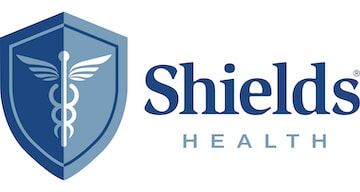GE Healthcare’s Deep Learning-based MR technology cuts scan time in half with improved image quality
Shields Health Care Group is the first site in the world to scan clinical patients using deep learning-based MRI tech, called AIR Recon DL from GE Healthcare, that reduces scan time and improves image quality. The first patient was scanned on September 24th; Shields MRI is presently the only MR imaging provider in New England with GE Healthcare’s new AIR Recon DL commercial product.
“This technology improves image quality while reducing scan times, which directly impacts patient comfort,” said Peter Ferrari, President of Shields Health Care Group. “When you can improve the delivery of care and enhance the clinical efficiency of the team, it’s a win-win.”
Until now, there was an inherent compromise in MR between image quality and scan time.
Now with AIR Recon DL, clinicians and technologists at Shields will no longer have to choose between image quality and scan time.
Radiologists and patients are impressed with both the time efficiency and image quality provided by the upgrade.
“It was surprising to me how easy it was to get great looking pictures, and how fast we were able to go,” said Tiron C.M. Pechet, MD, assistant medical director of Shields Health Care Group. “In under a minute, we’re getting noise-free images with superb edge definition and no ringing artifacts. You don’t really see that ever in MR, unless you’re doing much longer images.” Of the anatomies explored thus far–T-spine, L-spine, ankle, brain with and without contrast, lumbar with and without contrast–Dr. Pechet estimates that Shields will be able to achieve a 33 percent reduction on exam times for their patients.
The new technology upgrade at Shields was the first in the world to be used for clinical treatment and is used with the existing GE Healthcare 3T system. Scans using AIR Recon DL Technology reduce scan times by more than 30 percent. This provides a more patient-centric experience that is particularly important for those patients whose conditions require frequent scans, such as MS patients.
Shields plans to invest in adding the technology to its MRIs throughout its xx locations and estimates that it will improve the imaging and scan time in roughly 85 percent of all anatomic exams. For popular scans, such as a lumbar spine MRI, the scan traditionally would take 15 minutes but with the addition of AIR Recon DL, the scan time is cut in half.
The Awesome Potential of AI-Assisted MRI
Artificial Intelligence (AI) in medical imaging will change the way exams are read by automating the measurement of quantitative markers that impact disease assessment. AI will empower radiologists to find previously undiagnosed conditions, some even unknown by the patient. Doctors and researchers sometimes compare AI assistance to autopilots on planes that take over more routine or tedious tasks leaving the operator more time to proactively detect medical conditions and spend time with the patient.
Through the detection and careful follow up looking for subtle changes in Multiple Sclerosis, for example, AI is a game changer for patients and radiologists alike. This can contribute to increased speed and objectivity while reducing reading time, as well as help support the monitoring of disease progression in an objective and standardized matter. AI imaging applications can also aid in detecting anomalies and lesions thereby empowering radiologists to detect urgent cases faster and reduce overall report turnaround times. In many cases this can assist in early detection and possible subsequent prevention of unnecessary surgeries.
###
